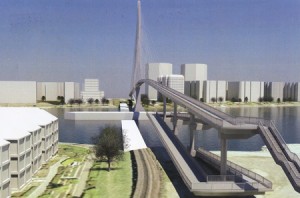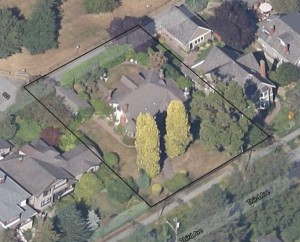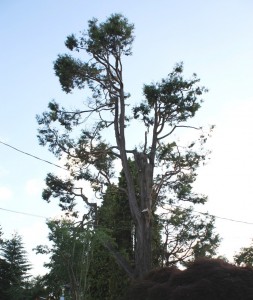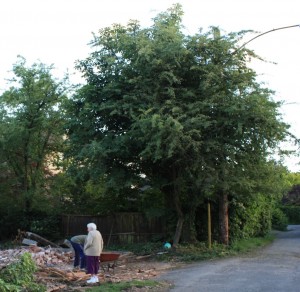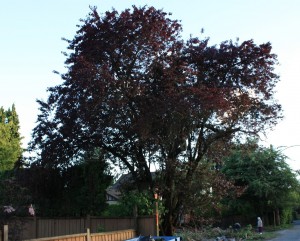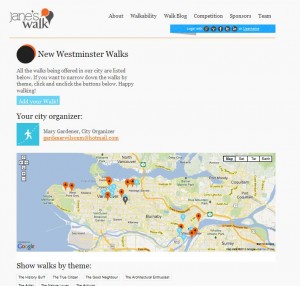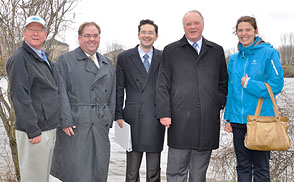I am someone who follows politics, gets involved in the process, likes to encourage others to get involved, is free with his opinions, yadda yadda. So you would think that I would be all excited with a tightening electoral race heading towards the polls next week. You would be wrong.
Sorry to all involved, everyone trying to get me to be more excited, but this election has been kind of a snoozer.
I was chatting to a few folks about this very topic on the weekend, and there were various excuses. Most seem to suggest we are fatigued – the election has been running for 2 years, the last 21 days have seen nothing more than an increase in volume and road signage compared to the last year. The Liberal’s (mostly through proxy) systematic application of fear and suspicion are turning people off, while the NDP have taken such a passive approach that they are not generating enough interest to offset the resultant cynicism.
Meanwhile the Greens are making serious inroads on Vancouver Island (but are silent elsewhere) and the Conservatives appear to be completely lost in the woods. The strongest cases I have heard this election are for electing independents in the hope we can fix the entire broken system.
I dutifully attended two of the three traditional all-candidates events, and I helped organize another one. Turnout for most was lower than in previous elections, which immediately calls me to question my earlier prediction that turnout would be up this year (people are more likely to line up to vote against something than they spend a lot of effort voting for something). I also have met all of the candidates in the local election. I have contributed to the process by donating my own money to the campaign. In the last 6 months, I have had lengthy sit-down discussions with three of the candidates, where we discussed a variety of issues.
From this, I have ascertained we have several truly dedicated, determined, and eager candidates, each who would serve out community well in Victoria, if given the chance.
But I only get to vote for one.
I mentioned earlier that my sincerest hope is that the local campaign is an open, honest, and positive one. From what I have seen, it has been. The only truly distasteful moment I experienced in this election was when I had a chance encounter with a person who claimed to be peripherally associated with one of the candidates and immediately gave me a bunch of “background juice” about the candidate that was highly personal. I don’t think this person knew I was a local blogger, and it was not in the context of any political event, so I’m not sure why I was chosen for a confessional. I had no reason to believe or not believe the person, and I don’t think that person’s gripes were valuable fodder for anyone. It was just weird, and hasn’t changed my opinion of the candidate or the campaign. I shared it only with a few people close to me and/or the candidate to see if I was missing something. Consensus opinion was that it was silly. So I didn’t let it bother me, and I won’t write about it here.
So in the spirit of open, honest and constructive discussion, I am going to give my impressions of the local candidates, and try my hardest to accentuate the positive. If you want to know who I am voting for, you might parse it from this, or you might drive by my house and see the sign on my lawn. Alphabetically (by first name, since we are all friends here!):
Hector Bremner: Hector has hit the City with a force. He is simply the best candidate the Liberals could have offered us this election. He is young, articulate, dedicated, and has one hell of a ground game going. His volunteer army has been ubiquitous (if somewhat anonymous), his twitter and other social media presence daunting (if not always topical), and his message strongly pointed (if not always clear). Overall, I think he is running a great campaign.
The one big thing Hector and I disagree about is the team he is representing. I have made it no secret I don’t like the Premier, and I do not have faith in her abilities as leader. Hector clearly respects her skills, and is proud to represent her. However, his campaign has been an interesting walk along a thin line: he has spoken about representing New West in Victoria, not the other way around, and has coined the phrase “this election isn’t about Change- it is about the Future”, while still saying his team is the best one to lead the Province. Not quite running as an independent, but not quite toeing the party line. It has been an interesting balancing act and he has been very effective at it.
After chatting with him recently, he is also convinced he is going to win, against the odds, the polls, and the assumed wisdom about New Westminster as an NDP stronghold. He also made it clear he was putting all his energy into this one shot – at the QPRA meeting he mentioned he was “not going to run in another jurisdiction or level of office”– this is the job he wants, and he is working hard to get it. I’m not sure he is going to be able to pull it off.
James Crosty: I was really happy to hear James was running, only because I hoped he would add some “spark” to the campaign in general. I’ve said it before: I don’t always agree with James, but I know for certain James always agrees with James. By that, I mean he is painfully honest about what is on his mind, his heart is in the right place, and he is always willing to stick his neck out and roll up his sleeves to see his vision realized. He brought a fresh perspective to the all-candidates events, full of his usual bluster, yet somewhat more positive and contemplative than he was during his Mayoral Run of 2011 (and therefore more likable). I also liked his honesty at the QPRA meeting (and I paraphrase): “[If I don’t win] You bet I am going to run again, for another level of government- because when you want to contribute to the community as much as I do, you can’t help but step up at every opportunity!”
This was in reply to Hector’s earlier discussion of his single-minded determination to get this specific job, but it told us what we all needed to know- James is healthy, happy, and as determined as ever to make change in this City. And I love him for it. I’m just afraid he ran an Independent campaign in a year when two other candidates were leaning more on their independent side than their Parties – that is a hard niche for three to fit into.
Judy Darcy: Despite my best efforts to remain jaded about the NDP nomination process, after two years of interacting with Judy Darcy, I really like her. She has an authentic spirit about her that makes you want to chat with her, and shows a keen ear when you bring her ideas. She is the first to admit when she doesn’t have an answer, but can draw on a lifetime of experience dealing with government and legislative issues. She also puts out a genuine sense that she is empathetic for others. In this campaign she was the one saying government can (and must be) an effective and positive force in our society if we are to have a fair and just society.
I think she could have done a better job taking her one perceived weakness – the feeling that she’s not “from here” (of course neither are Hector, or Terry, or James… or me for that matter) – and turned it around. She might have said that despite her only being out west for a decade, she has spent her entire life fighting for the issues that are important to people in New Westminster- We have RCH, and she has been fighting for hospital workers; we have an aging population, and she has been an advocate for seniors; we are a town with a large labour-class and she has been fighting labour issues her entire life; we have a huge population of immigrants and people in lower-cost rental housing, and she is a first-generation Canadian who has been fighting to improve conditions for low-income people. But maybe that would have been giving too much credence to the criticism in a town full of immigrants from other parts of Canada, and other parts of the world.
Her campaign was instead like that of Adrian Dix, the campaign you run as someone safely in the lead: relatively low key and positive, with a strong personal connection. She has worked hard since gaining the nomination to reach out to people across the community, and it is a good thing, because she is a candidate who is way better in person than she is on paper.
Lewis Dahlby: I have not seen or heard a peep out of Lewis this election. I did not attend the one all-candidates event he chose to attend (and where he apparently decided it was OK to commit a Godwin in polite discussion).
I have, however, once met Lewis Dahlby. I recognized him as the guy who accosted me at Sapperton day a couple of years ago. I was manning the NWEP booth having great conversations with people about transportation issues, and he spent an hour bending my ear about what was wrong with “you people” and how Government had to get out of the job of building roads and bridges. In the end, we agreed to disagree shortly after I suggested to him that if really wanted to live in a country with no interference from Government, he might want to give Somalia a try.
Paul Forseth: Paul’s campaign here in New West was symptomatic of the entire provincial Conservative campaign. It was rather lack-lustre and held more promise at the start than real punch in the end. I appreciate the service Paul has provided in the community, from his time working in the corrections, family law and parole systems, to his dozen years serving the community as an MP. However, it is clear to anyone reading my blog that I don’t share his Conservative opinions, so he probably wasn’t trying to appeal to me and my ilk.
Still, I don’t think his campaign lit any fires, and I didn’t hear him offering the electorate much. He spoke of “Conservative Values” having a history of providing better governance, but never really clarified what he meant by those words, nor did he cite examples from the modern world where “conservative” countries were outperforming “non-conservative” countries. When he shone, it was when speaking of his personal experiences growing up in New Westminster and providing services to constituents as an MP. He also rarely mentioned his Party, while at the same time he never differentiated himself from the other “Independents” running in this election in New West.
Terry Teather: To me, Terry’s finest moment was the “Stump Speech” he gave, while standing on an actual stump, during the All Candidate’s Jane’s Walk. He got very impassioned about what Green Principles are, and why they are the best direction forward for the Province, and indeed the world. He came into this election a virtual unknown in New West, but explained his motivation being to encourage the youth that he teaches in his day job to take an active role in politics- to learn and care about how Government works.
Being a virtual unknown prior to this election, I doubt he will reach the level of support that the Greens received in New Westminster during the last Provincial election, as those numbers saw a “bump” due to well-known local activist Matt Laird being on the ballot. However, Terry’s presence on the campaign was a positive one, and I hope he has the time and energy to stay involved in the local environmental scene after May. I was really happy to have met Terry during the campaign, he seems like a straight-up nice guy with a passion for improving community. We need him on the NWEP.
Now go vote. Advanced polls are open May 8-11, every day, and May 14th is the big day. I voted this evening at the Lawn Bowling Club, and it took less than 5 minutes. Go!
